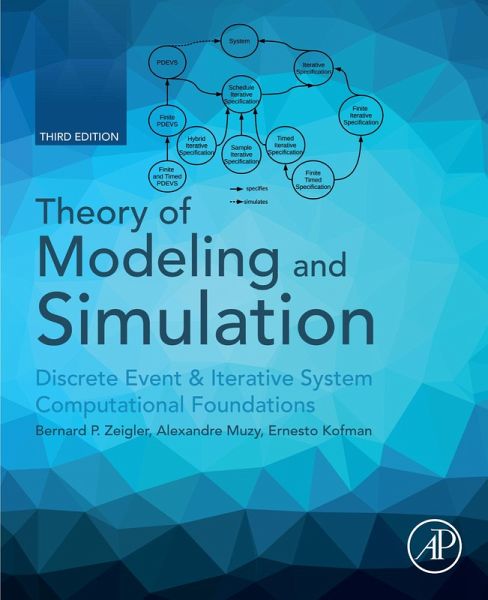
Theory of Modeling and Simulation (eBook, ePUB)
Discrete Event & Iterative System Computational Foundations

PAYBACK Punkte
37 °P sammeln!
Theory of Modeling and Simulation: Discrete Event & Iterative System Computational Foundations, Third Edition, continues the legacy of this authoritative and complete theoretical work. It is ideal for graduate and PhD students and working engineers interested in posing and solving problems using the tools of logico-mathematical modeling and computer simulation. Continuing its emphasis on the integration of discrete event and continuous modeling approaches, the work focuses light on DEVS and its potential to support the co-existence and interoperation of multiple formalisms in model components....
Theory of Modeling and Simulation: Discrete Event & Iterative System Computational Foundations, Third Edition, continues the legacy of this authoritative and complete theoretical work. It is ideal for graduate and PhD students and working engineers interested in posing and solving problems using the tools of logico-mathematical modeling and computer simulation. Continuing its emphasis on the integration of discrete event and continuous modeling approaches, the work focuses light on DEVS and its potential to support the co-existence and interoperation of multiple formalisms in model components. New sections in this updated edition include discussions on important new extensions to theory, including chapter-length coverage of iterative system specification and DEVS and their fundamental importance, closure under coupling for iteratively specified systems, existence, uniqueness, non-deterministic conditions, and temporal progressiveness (legitimacy). - Presents a 40% revised and expanded new edition of this classic book with many important post-2000 extensions to core theory - Provides a streamlined introduction to Discrete Event System Specification (DEVS) formalism for modeling and simulation - Packages all the "need-to-know" information on DEVS formalism in one place - Expanded to include an online ancillary package, including numerous examples of theory and implementation in DEVS-based software, student solutions and instructors manual
Dieser Download kann aus rechtlichen Gründen nur mit Rechnungsadresse in A, B, BG, CY, CZ, D, DK, EW, E, FIN, F, GR, HR, H, IRL, I, LT, L, LR, M, NL, PL, P, R, S, SLO, SK ausgeliefert werden.













